Keywords: Trauma
There are more than 200 results, only the first 200 are displayed here.
-
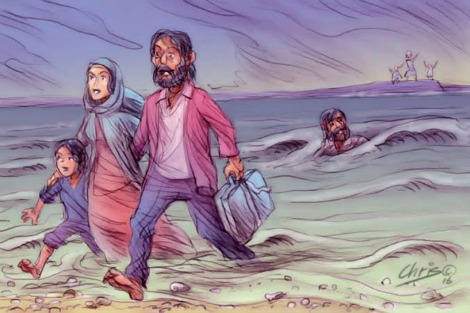
AUSTRALIA
- Kerry Murphy
- 20 June 2016
2 Comments
Mustafa speaks very good English, and his professional skills are going to help him get work in Australia. He is not going to take an 'Australian's job' - he will work and contribute to the economy, as we all try to do. Ali's situation is far less certain. He came on a boat after being approved as a refugee by the UNHCR in Indonesia. He saw no movement in resettlement from Indonesia so he came to Australia. He is one of the thousands who, if they can prove their refugee case, only get a temporary visa.
READ MORE 
-

ARTS AND CULTURE
- Tim Kroenert
- 09 June 2016
Vice-principal Rickard claims the credit for having lifting the status of the once struggling public school, and sees in the smart but troubled new student Mark both the potential to do well and a danger to his own legacy. For his own part Mark, who was previously kicked out of the private school to which he had earned a scholarship, sees in Rickard a misguided do-gooder and, later, something a little more dangerous: an ambitious man whose ego is the flipside of insecurity.
READ MORE 
-

AUSTRALIA
- Frank Brennan
- 30 May 2016
5 Comments
'Being in the middle of an election campaign, I will not be making any partisan party political points. However being here in the bellwether seat of Eden-Monaro, I will conclude with a critique of both major political parties, and with one piece of political advice for citizens of goodwill seeking a national asylum policy more in harmony with the ideals set out by our bishops in their social justice statement.' Yass Catholic Parish Potluck Dinner, 28 May 2016
READ MORE
-

AUSTRALIA
- Somayra Ismailjee
- 20 May 2016
33 Comments
The irony of trying to negate these stereotypes is that in doing so, we are still cheapening asylum seekers to political tools, stripping them of their humanity and multiplicity. Aiming to counter such rhetoric as Dutton's with stories of high-achieving refugees plays into a toxic game that legitimises the same negative stereotypes by engaging with them. Just as invisibility dehumanises asylum seekers, so does the hypervisibility we attribute to a select few stories.
READ MORE 
-
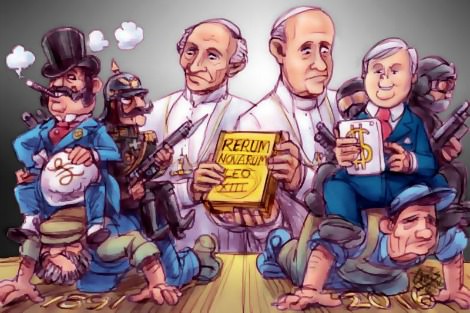
RELIGION
Pope Francis is determined to highlight the opposition of Christian social thinking to the tenets of neoliberalism or market fundamentalism, an ideology which assumes that free markets of themselves will produce the best outcome, and which pushes aside considerations of social or distributive justice. It is unlikely Francis would be waving the flag of social justice so boldly on the world stage had Pope Leo XIII not written his famous social manifesto, Rerum Novarum, 125 years ago.
READ MORE 
-
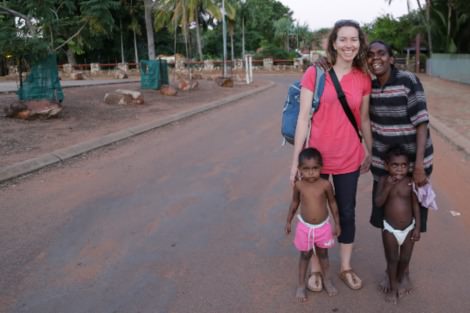
AUSTRALIA
Doreen, a women's leader from the community in Kalumburu, said, 'it is our dream for us women to get up and make the community stronger'. Such determination ought to be facilitated. What this means is making avenues where Indigenous culture and cultural life are at the centre of the conversation to effect change. Instead of adopting a 'helping' attitude, there needs to be a shift towards facilitating self-agency as an economically rational approach when it comes to Indigenous Australians.
READ MORE 
-

AUSTRALIA
- Ellena Savage
- 18 March 2016
24 Comments
'Coming out' is a gesture specifically, politically required of queer people but not of straight people. Another statement demanded of queer people is that they are injured and traumatised by the fact of their sexuality or gender. But why call on individuals to testify when the statistics are heartbreaking enough? This demand on queers to continually deliver narratives of oppression limits their social roles, and even invalidates their voices on matters other than their sexualities and genders.
READ MORE 
-

ARTS AND CULTURE
- Gillian Bouras
- 16 March 2016
9 Comments
It was a bright winter's day when we visited Iphigenia. Long widowed, she was meticulously turned out in black traditional outfit. Iphigenia is not sure how old she is; she thinks she is 86. Anglophones regularly make a hash of this beautiful name, the correct pronunciation of which is Ifeeyainya. But the ones I know are intrigued by the mythological character, who was ill-fated, to say the least. I soon learned that there had also been ample sorrow and trauma in the life of the modern Iphigenia, too.
READ MORE 
-

ARTS AND CULTURE
- Tim Kroenert
- 03 March 2016
In the history of the Second World War and the deathly screed of the Final Solution, the Sonderkommando cuts a pitiable figure. These Jewish prisoners at Auschwitz and other death camps who were forced to perform the logistics surrounding mass murder - the carting and disposal of dead flesh - though patently victims, were viewed by some as collaborators. Son of Saul provides an immersive and impressionistic extrapolation of this ethical and actual horror.
READ MORE 
-
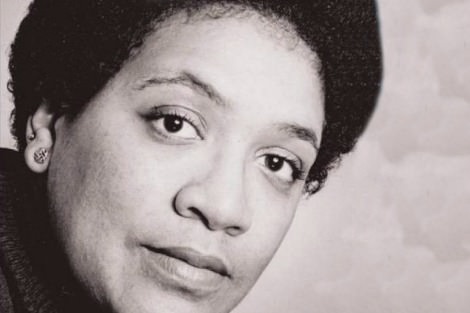
AUSTRALIA
- Somayra Ismailjee
- 24 February 2016
4 Comments
Feminist writer Audre Lorde wrote that 'Caring for myself is not self-indulgence, it is self-preservation, and that is an act of political warfare.' In medical professions, the term 'self-care' originated in reference to the self-management of illness. Self-care, however, also exists in the context of social justice, extending beyond physical wellness to cater for a holistic approach that includes emotional, mental and spiritual fulfilment. The need for this is rooted in the burden of oppression.
READ MORE 
-

AUSTRALIA
- Paul Coghlan
- 17 February 2016
6 Comments
Having worked at Victoria Police for 25 years, I have great empathy for Wade Noonan, who stepped down as Victoria's Minister for Police to undergo counselling due to his exposure to traumatic incidents in this work. I have long felt that job advertisements for police should carry a health warning: This position may be dangerous to your mental, physical and spiritual health. Whether it be trawling through crime statistics or investigating crimes directly, police work means filling your soul with dark things.
READ MORE 
-
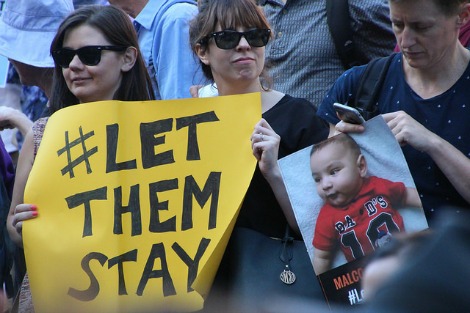
AUSTRALIA
- Andrew Hamilton
- 11 February 2016
15 Comments
The High Court decision on detention in Nauru came down just before the Christian season of Lent. It left the government free and determined to deport many young mothers and children to Nauru. For the mothers and children deportation will bring new trauma with renewed threat to their already precarious mental health. For the Australian public it again makes us ask what brutality, even to children, we are ready to tolerate. The savagery of this treatment is a suitable subject for Lenten reflection.
READ MORE 